Elias Boukachabine (LLM ’18)
Sarah Hunter (JD ’18)
Richard Kwek (LLM ’18)
Melissa McCall (JD ’19)
Zainab Ramahi (JD ’19)
Karen Seif (JSD ’19)
Anil Yilmaz (LLM ’18)
Michael Youhana (JD ’18)
Elias Boukachabine (LLM ’18)
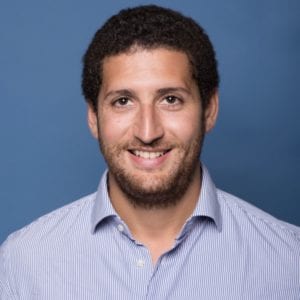 Attending the Annual Meeting of the American Society of International Law is a unique opportunity to meet with the international law community. As an LL.M. student specializing in International Commercial and Investment Arbitration, I was thrilled by the theme on this year’s edition: “International Law in Practice.” This theme was divided into several different tracks, one of them being International Dispute Resolution.
Attending the Annual Meeting of the American Society of International Law is a unique opportunity to meet with the international law community. As an LL.M. student specializing in International Commercial and Investment Arbitration, I was thrilled by the theme on this year’s edition: “International Law in Practice.” This theme was divided into several different tracks, one of them being International Dispute Resolution.
I was able to attend lectures on various arbitration-related topics such as diversity and inclusion in International Arbitration, the prospects and challenges of International Arbitration in the Asia-Pacific, the transformation of ISDS and the settlement of investor-state disputes, or the practice of judging. Speakers included practitioners and scholars such as Lucy Reed, Judge Charles N. Brower, Sir Christopher Greenwood, or Eduardo Silva Romero.
The legitimacy of investment-arbitration mechanisms being currently criticized, I found it stimulating to hear practical answers to these challenges coming from policymakers, arbitrators, and lawyers. Delivering the Charles N. Brower lecture on international dispute resolution, Meg Kinnear, the Secretary-General of the International Centre for Settlement of Investment Disputes, notably detailed the future changes that will be made to the ICSID rules, emphasizing the need for a balance between investors and states.
The Annual Meeting was also the opportunity to remember the life of former UC Berkeley School of Law Professor David D. Caron who passed away this year. Among other speakers, Sir Christopher Greenwood, who is set to replace him as a judge to the Iran-United States Claims Tribunal, gave a vibrant speech honoring his life and career.
Finally, I enjoyed attending the New Professionals’’ Reception where I had the chance to meet with young practitioners and other LL.M. students and share thoughts about our common interests in international law.
It was an honor to represent UC Berkeley School of Law at the ASIL Annual Meeting along with my other fellows. I am very grateful to Berkeley Law and the Miller Institute for this great opportunity.
Sarah Hunter (JD ’18)
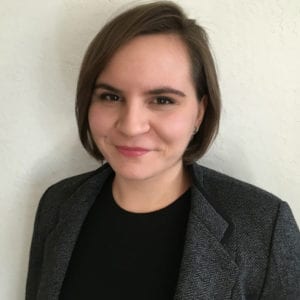 International Law is at a crossroads. At this year’s American Society of International Law meeting on “International Law in Practice,” the panelists endeavored to identify the current opportunities and challenges in their respective fields. The International Criminal Court, World Trade Organization, and the myriad of UN Treaty Bodies are all facing challenges to their legitimacy. World leaders have questioned the very idea of international law, asking whether it is efficacious or even desirable. Nearly every panel grappled with the question of where we are and how to move forward. But it was not until former International Court of Justice Judge, Sir Christopher Greenwood, spoke during the Thursday’s keynote that a panelist talked about how far the field has come.
International Law is at a crossroads. At this year’s American Society of International Law meeting on “International Law in Practice,” the panelists endeavored to identify the current opportunities and challenges in their respective fields. The International Criminal Court, World Trade Organization, and the myriad of UN Treaty Bodies are all facing challenges to their legitimacy. World leaders have questioned the very idea of international law, asking whether it is efficacious or even desirable. Nearly every panel grappled with the question of where we are and how to move forward. But it was not until former International Court of Justice Judge, Sir Christopher Greenwood, spoke during the Thursday’s keynote that a panelist talked about how far the field has come.
Sir Greenwood spoke about that pervading pessimism and how global challenges today often seem insurmountable. We have the greatest number of displaced people in recent history, war criminals remain uncaptured, active conflicts continue in dozens of states, trade deals are failing, and the international system as a whole is threatened by growing populist, nationalist, and isolationist attitudes. Cynicism seems appropriate. But it is just as important to remember how far international law has come and take stock of its achievements. The past half-century has seen global cooperation to fix the hole in the ozone, establish international tribunals to hold war criminals accountable, and lift millions out of poverty through collective action. One need only look at the work of M. Cherif Bassiouni and David Caron, giants in the field who have recently passed, to see the scale of what can be achieved through dedicated service and idealism. As skeptics dismissively remind us and we earnestly embrace, this is an idealistic cause, one that aims to resolve grand disputes and make government’s more responsive to their people. Going to ASIL reaffirmed my desire to be a part of this field, despite and because of all of its challenges.
It is a special privilege to represent Berkeley Law as one of the Miller Institute’s fellows during my last semester here, one for which I am immensely grateful.
Richard Kwek (LLM ’18)
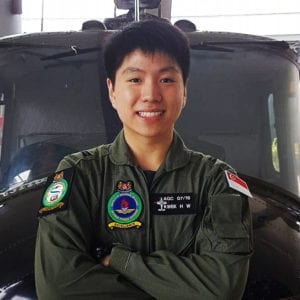 “Hi, aren’t you Richard?” A familiar, British voice said as I settled into my seat during the first conference session of the day. I turned around and without surprise, there sat Dr. Kimberley Trapp, Senior Lecturer of International Law from the University College London. She was the first professor that introduced me to the academic pursuit of international law in my undergraduate days in London. It turns out that she had organized the session on humanitarian access in armed conflicts that I was attending, which turned out to be a very thought-provoking discussion on how humanitarian aid from external organizations or states may be delivered in the absence of host state consent. But interesting and enriching as that experience may have been, what truly struck me during this session was how small the world was. There I was, two years on and very much more advanced in my journey with international law, to be attending a session organized by the very professor who had taught me the very basics of international law a whole continent away.
“Hi, aren’t you Richard?” A familiar, British voice said as I settled into my seat during the first conference session of the day. I turned around and without surprise, there sat Dr. Kimberley Trapp, Senior Lecturer of International Law from the University College London. She was the first professor that introduced me to the academic pursuit of international law in my undergraduate days in London. It turns out that she had organized the session on humanitarian access in armed conflicts that I was attending, which turned out to be a very thought-provoking discussion on how humanitarian aid from external organizations or states may be delivered in the absence of host state consent. But interesting and enriching as that experience may have been, what truly struck me during this session was how small the world was. There I was, two years on and very much more advanced in my journey with international law, to be attending a session organized by the very professor who had taught me the very basics of international law a whole continent away.
The above story reminded me that as much as we spend most of our time discussing ideas, concepts, and theories, the field of international law is ultimately about people. Although we have been taught from the very start to understand the framework of international law from a state-centric perspective (because after all, only states may be a party to a dispute in the International Court of Justice), I believe that it is the individual human being that should be at a position of ethical primacy in international law. As someone who would potentially be directly involved in armed conflicts in the future, one of my greatest takeaways from ASIL is that it is essential for us as international lawyers to look beyond the legality of the use of force between states, or even to consider international humanitarian law as numbers and figures and a mere technicality of armed conflict. Rather, it is important for us to understand the actual impact of the legal and operational decisions that we make from the comfort of our office chairs on the people on the ground. The true purpose of our roles is to have a positive impact on the global community, and it is the very people on the ground that make up this community.
The ASIL Annual Meeting 2018 was truly a conference to be remembered, and I am thankful to the Miller Institute for giving me this opportunity to learn and grow as a student of international law.
Melissa McCall (JD ’19)
 On the second day of the American Society of International Law’s 112th Annual Meeting, the National Park Service announced that the District of Columbia’s cherry blossoms were at peak bloom. It was a beautiful backdrop for an excellent conference.
On the second day of the American Society of International Law’s 112th Annual Meeting, the National Park Service announced that the District of Columbia’s cherry blossoms were at peak bloom. It was a beautiful backdrop for an excellent conference.
As a woman, a JD/PhD student at Berkeley Law, and an ASIL member, one of the highlights of the meeting for me was the announcement of a resolution to grant posthumous member status to attorneys whose applications were denied before 1921. These women included Belva Ann Lockwood, who successfully lobbied Congress to admit her to the US Supreme Court Bar after the Justices refused her.
My own particular interests in international law relate to the Law of Armed Conflict and its application and evolution since September 11, 2001. Relatedly, I attended panels that discussed the legal authorization for the use of force against non-state actors, and the role of law in shaping or responding to the development of lethal autonomous weapon systems. I also attended a moderated debate on the lawfulness, scope, and usefulness of military commissions. This was an exciting session with significant audience participation. Another thought-provoking session I attended was one far outside my own area of study: a late-breaking panel on international law and misinformation campaigns. One panelist made the fascinating argument that politically-motivated misinformation campaigns that exploit psychographic information should be viewed as human rights violations. In each of these sessions, I was impressed with the array of perspectives: panelists included representatives from human rights and other nonprofit organizations, law firms, militaries, governments, the legal academy, and occasionally other relevant academic departments.
I am grateful to the Miller Institute and Berkeley Law’s Advanced Degree Programs Office for including me as one of Berkeley Law’s student fellows at this year’s ASIL annual meeting. It was a wonderful opportunity to stay abreast of important developments in my own area of study, to increase my exposure to other areas of international legal thought, and to connect with other practitioners and scholars in the field.
Zainab Ramahi (JD ’19)
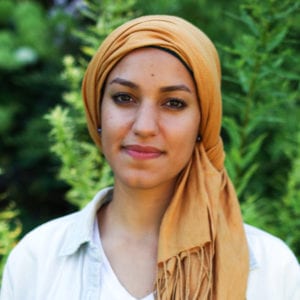 Attending the 2018 American Society of International Law Conference in Washington, DC reinvigorated my interest in issues of international law and helped me to rediscover my passion for issues relating to conflict, human rights, and torture.
Attending the 2018 American Society of International Law Conference in Washington, DC reinvigorated my interest in issues of international law and helped me to rediscover my passion for issues relating to conflict, human rights, and torture.
One of the panels I attended, on the topic of “intractable conflicts,” attracted me because both of my parents are from regions where the conflicts are often described as intractable. The panelists spent a considerable amount of time defining the parameters of the problem, specifically, how to define “conflict,” “dispute,” and “intractable” and pointing out that even to characterize a particular region as “disputed” may be a contested characterization by the parties involved. The most interesting takeaway from that session for me was thinking about the ways in which our international legal institutions might change to accommodate for adjudication between parties when one or more of the parties is a non-self-governing body, but has rights recognized under international law (for example, the case of Morocco and the indigenous people of Western Sahara). Also, given the often significant role that corporations play in conflict, how can international courts and dispute resolution fora extend their jurisdiction such that all parties who really need to be at the table are forced to attend?
The theme for this year’s conference was “practice” and I thought this was well illustrated in the mix of practitioners and academics that were present on the various panels. I thought this was particularly salient during a discussion of the role of the US Congress and whether they can be understood to be “resurgent” vis-à-vis checking Executive action. It was very interesting to hear the perspective of people who work for Congress members and to consider the reality of how human relationships can effect decisions that have national or even international effects.
It was exciting to be in the room with people who have incredibly storied careers, including the last remaining judge who presided over the Nuremberg trials. I had noticed that Justice Abella of the Supreme Court of Canada was attending the conference as well – she penned a dissent that I drew upon heavily in a paper that I wrote last summer, which dealt with the Muslim face veil and the courts. I had several interesting conversations, including with a Palestinian who worked for Al-Haqq, a human rights organization, for over a decade, and is now doing a PhD on the role of corporations in maintaining the Israeli occupation.
Many sincere thanks to the Miller Institute for this wonderful opportunity.
Karen Seif (JSD ’19)
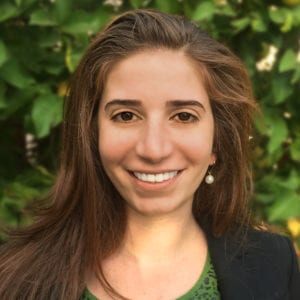 The 112th ASIL Annual Meeting on “International Law in Practice” provided a welcome report on the current relationship between international law theory and its practice, through a series of diverse panel workshops and fascinating keynote lectures.
The 112th ASIL Annual Meeting on “International Law in Practice” provided a welcome report on the current relationship between international law theory and its practice, through a series of diverse panel workshops and fascinating keynote lectures.
The first lecture of the Annual Meeting (Grotius Lecture) was delivered by Judge Joan Donoghue of the International Court of Justice (ICJ). After noting the mainstream academic bias against international courts, Judge Donoghue challenged the position that the international legal system is defunct. To that end, the ICJ’s healthy caseload and states continued participation in the system through judicial appointments to international court were highlighted as support. Judge Donoghue cautioned against overloading the ICJ with “expectations for which it was not created” and recommended close adherence to the United Nations Charter.
Judge Christopher Greenwood, international arbitrator and judge recently appointed to the Iran-US claims tribunal, shared his insight on the practice of international adjudication. Tackling the issue of the duty owed by an international judge or arbitrator, Judge Greenwood took a firm position. In his view, while a judge sitting on an international court owes a duty to the international community (and the United Nations where applicable), an international arbitrator owes his duty “to the parties, but not at the expense of the international community”.
In addition to international judges, the ASIL Annual Meeting also featured representatives of international organizations. Meg Kinnear, Secretary-General the International Center for the Settlement of Investment Disputes (ICSID), presented upcoming modifications to the ICSID Convention that are aimed at strengthening the system of investor-state dispute resolution. Attending the Annual Meeting was an opportunity to be amongst the first to learn about the ICSID modifications, which are not due for public release until September 2018.
I am grateful to the Miller Institute and the Advanced Degree Office for this fellowship and was honored to represent Berkeley Law at the 112th ASIL Annual Meeting.
Anil Yilmaz (LLM ’18)
 The 2018 ASIL Annual Meeting with the theme of “International Law in Practice” was rich in all areas of international law. Numerous sessions were held on diverse hot topics ranging from the role of non-state actors in implementation of Paris Agreement for climate change to preservation of cultural heritage at times of Syrian armed conflict. My research interests often lead me to take part in international economic law sessions, but the four-day meeting provided me with ample opportunity to deepen my knowledge on other areas of international law. Having this exceptional scope stood out from my previous experience with similar organizations around the world. Perhaps the Meeting was the very embodiment of what Judge Greenwood suggested in his keynote namely to keep a holistic approach to international law and not to over specialize in particular areas at the expense of others.
The 2018 ASIL Annual Meeting with the theme of “International Law in Practice” was rich in all areas of international law. Numerous sessions were held on diverse hot topics ranging from the role of non-state actors in implementation of Paris Agreement for climate change to preservation of cultural heritage at times of Syrian armed conflict. My research interests often lead me to take part in international economic law sessions, but the four-day meeting provided me with ample opportunity to deepen my knowledge on other areas of international law. Having this exceptional scope stood out from my previous experience with similar organizations around the world. Perhaps the Meeting was the very embodiment of what Judge Greenwood suggested in his keynote namely to keep a holistic approach to international law and not to over specialize in particular areas at the expense of others.
Much can be said about the educational aspects of the ASIL Meeting’s sessions — especially given the fact that the Brower lecture given by the ICSID Secretary-General Meg Kinnear and the panel entitled “ISDS at a Crossroads: How the Settlement of Investor-State Disputes is Being Transformed” directly spoke to my research. Yet as an aspiring young scholar and a proud member of Berkeley Law community, I rather decided to dedicate this piece to something more personal. The 2018 ASIL Annual Meeting was dedicated to memory of late Professor David Caron. Concurrent to the organization, I had the honor of being involved in a research project to commemorate Professor Caron headed by the Miller Institute, the very institution which made the ASIL experience possible for us. At the Meeting, numerous high-profile speakers generously spared their time and shared their memories on Professor Caron, quoted him on legal issues, elaborated on his fine character and recognized his remarkable contribution to international law. Professor Caron’s significant ability to help his colleagues with their personal and professional struggles has touched upon the lives of so many and this was deeply cherished by the Members.
Professor Caron was an alumnus of Boalt Hall and has taught international law at our law school for some 26 years. Among his long list of achievements, he was an ad hoc judge at the International Court of Justice, a sitting judge at the Iran-US Claims tribunal and the former President of the ASIL. In his early years, he was a devoted international law student at Boalt Hall and shared the same desks with us. He had the privilege of being taught by our renowned international law Professor Stefan Riesenfeld. Professor Caron stands a fine example of what we can achieve as Boalt Hall students in the field of international law. Sitting in the crowd, hearing stories about this international law giant and thinking about our place in the world made me feel very proud but equally responsible. It will be a challenge to live up to Professor Caron’s memory, but as the 2018 ASIL Annual Meeting indicates it is something that we must be considerate of and undertake at Berkeley Law.
Michael Youhana (JD ’18)
 This year’s American Society of International Law Annual Meeting was about “International Law in Practice.” But I left the conference reflecting upon the possibility that certain areas of law might be impracticable. Laws that purport to regulate relations between states, whether domestic or international, turn out to be quite difficult to reify. My favorite panels and lectures underscored the frustrations of practitioners and scholars attempting to use the law to regulate – and restrain – governments engaged in interstate war.
This year’s American Society of International Law Annual Meeting was about “International Law in Practice.” But I left the conference reflecting upon the possibility that certain areas of law might be impracticable. Laws that purport to regulate relations between states, whether domestic or international, turn out to be quite difficult to reify. My favorite panels and lectures underscored the frustrations of practitioners and scholars attempting to use the law to regulate – and restrain – governments engaged in interstate war.
One panel, titled “Women, Peace, and Security” Agenda in Practice, grappled with the limits of the United Nations Security Council’s powers. Panelists argued that the promulgation of new Security Council resolutions promoting women’s participation in peacebuilding efforts would mean little without follow-up from key stakeholders. Sanam Anderlini stressed that the prevention of war and the maintenance of peace remain the goals of the “Women, Peace, and Security” Agenda. I walked away from the panel with a key insight: closing gender gaps in humanitarian settings might empower a greater number of people to play a role in making the promises of the UN Charter a reality.
Another panel “Congress Resurgent? The role of the legislature in shaping U.S. foreign policy” demonstrated that extending the rule of law over matters related to war and peace is difficult even in the realm of national law. Speakers, like Oona Hathaway, drew the audience’s attention towards the fact that American legislators have done little to exercise their rights and responsibilities under the Constitution in the past few decades. The open-ended 2001 Authorization for Use of Military Force came under special scrutiny, as an example of Congress punting to the executive. Accordingly, panelists broached the possibility of future authorizations of military force including sunset provisions.
I find it doubtful that these issues can be resolved through innovations in the law alone. The path to international peace will be uncovered through collective action. Building communities dedicated to the pacific values that motivated the drafting of the UN Charter is a prerequisite to such action. And conferences, like ASIL’s Annual Meeting, are community-building opportunities for practitioners and scholars alike.
I am sincerely thankful to The Miller Institute for Global Challenges and Law for granting me the honor of attending.